The UXL Foundation at SC24. A convergence of HPC and AI.
Historically SC24 is the largest High Performance Computing (HPC) conference in the world, however it now sees a high proportion of content and exhibitors focused on Artificial Intelligence. I’ve thought for a while now that there is a clear intersection of these two areas, with both focused on how to push the level of performance that software runs at to the limits. Indeed both HPC and AI developers are using similar techniques and hardware to accelerate their software.
This made it a great venue to bring together the UXL Foundation community for a face to face meetup. As the conference lasts almost the entire week, we kicked it off with breakfast and a set of talks from some of our steering members.
Chris Goodyer from Arm, Priyanka Sharma from Fujitsu, Penporn Koanantakool from Google, and Sanjiv Shah from Intel talked about their involvement and contributions to the foundation. The meetup also gave our community an opportunity to discuss opportunities for collaboration and even partnerships.
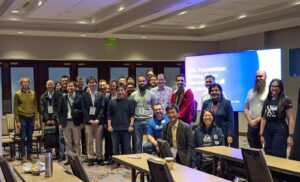
The message from our members was clear, their commitment to open standards and open source based development for heterogeneous architectures is strongly linked to their strategy for success, and the Unified Acceleration (UXL) Foundation is an important part of that.
This was not the only place that the UXL Foundation was represented at SC24. Fujitsu Steering member representative Priyanka Sharma presented in the exhibition on their work to accelerate AI on the MONAKA supercomputer. The Fujitsu team is focused on using open standards and open source with recent contributions to the oneDNN and oneDAL projects adding crucial new components, you can read about this in their blog.
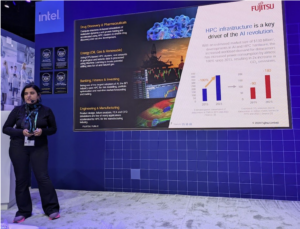
On Tuesday Intel hosted a panel in their booth featuring three UXL Foundation Steering Committee members alongside technology experts from Red Hat, the University of Birmingham and TUM.
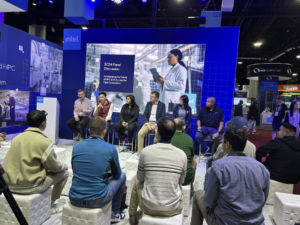
This panel focused on the importance of open ecosystems in the future of HPC and AI. There were some great discussions on topics ranging from the barriers to contributing in open ecosystems, to the benefits open source brings to making software future proof for current and future hardware architectures.
There were many presentations featuring software that makes use of oneAPI specification and the UXL Foundation projects. The EU funded Aero project is focused on helping to deliver software for the EU Processor Initiative, the next generation hardware for European centres. There was a demonstration of how this is using the oneAPI Construction Kit, a newly contributed project to the UXL Foundation to enable Java and SYCL code to run on Nvidia and RISC-V hardware.
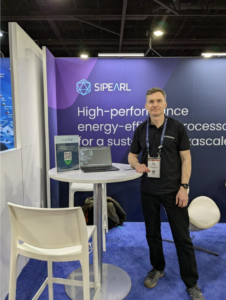
This demonstration was shown on the SiPearl booth and there was an announcement at the RISC-V Birds of a Feather session on how the oneAPI Construction Kit has contributed to the UXL Foundation.
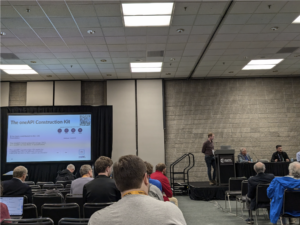
The SYCL standard is a key part of some of the UXL Foundation projects, making it possible to target multiple architectures from multiple vendors, and there is an alliance between the Khronos organisation and the UXL Foundation to facilitate knowledge sharing and feedback.
There were two key activities around SYCL at SC24, with a well attended half-day tutorial led by Argonne and CERN where delegates learned how to accelerate their code on different architectures.
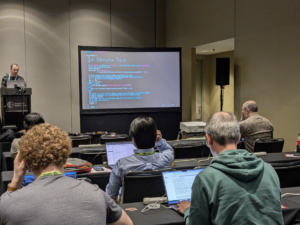
Later in the week, a ‘Birds of a Feather’ session was held for SYCL, with a UXL Foundation Steering Committee chairperson presenting.
This is always a busy conference with so much going on in the tracks as well as the exhibition, not to mention the evening receptions. I hope we can repeat the face-to-face session at the next SuperComputing conference with even more members of our community.

